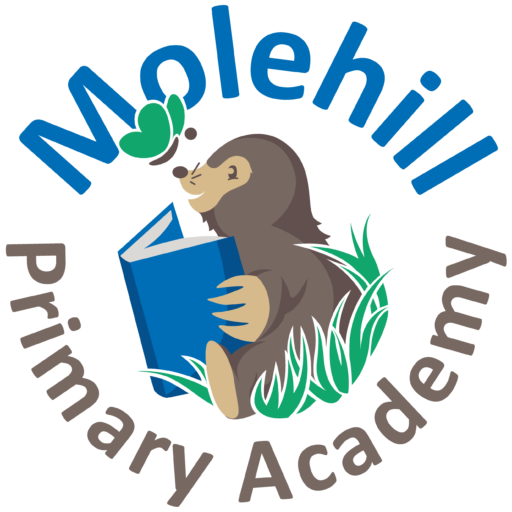At Molehill Primary Academy, we know that developing a curiosity about the past is an essential and powerful skill. We want children to not only recall substantive knowledge about different eras of History, key historical events and significant individuals but to also develop their disciplinary knowledge, understanding how historians investigate the past, and how they construct historical claims, arguments and accounts. We aim for all children to view themselves as historians and to ask critical questions, viewing good questions as an engine of historical inquiry. Through the use of substantive concepts we support children to develop an understanding of the bigger concepts of History that flow through all areas of our curriculum, allowing them to make connections. We value the importance of teaching about historical events, both locally and globally. We believe that valuing the importance of being internationally minded supports children to develop the characteristics of respect, tolerance, open mindedness, patience and kindness, which we believe are essential to developing the ‘whole child’. The teaching of History is vital in allowing children to understand why the world is as it is now and how events of the past have shaped the world we live in today. We want children to see the subject of History as an ongoing process which they are part of and have an impact upon.
Our History teaching and learning begins in the Early Years Foundation Stage within the ‘Understanding the World’ area of learning. Within this children explore the world around them and we begin to identify the historical understanding children already have. The children share information about key events from their own personal histories before extending this onto talking about the lives of people around them and their experiences of the past. This focus on starting from what children already know is continued throughout the school and all learning starts by revisiting prior knowledge.
Teachers support children to recall previous learning and make connections through the use of substantive concepts. Adults model explicitly the subject-specific vocabulary, knowledge and skills relevant to the learning to allow them to integrate new knowledge into the larger substantive concepts. Throughout the school we use historical artefacts, visitors, workshops and visits to excite and intrigue our children to find out more about events and people from the past. We aim to give our children as much understanding as possible about what it was like to be around at a particular period in history by having practical and experiential lessons where possible.
A long term Curriculum Map, and corresponding Termly Overview, links the History National Curriculum to inquiries being led by each class. The History Subject Leader uses lesson observations, book looks, conversations with class teachers and children to monitor progress which is underpinned by a Foundation Subject Tracker.
The impact of our History curriculum can be seen in our Inquiry Books, as part of displays throughout the academy, and through discussion with our children. Through pupil voice discussions children will be able to talk about both the substantive and disciplinary knowledge they have gained. Observations of lessons will show that children are engaged fully in the inquiry focused history curriculum we deliver and continually want to find out more. Children will be able to make connections between different eras of history through the use of substantive concepts and the use of our school timeline will allow children to develop a secure understanding of chronology. Children will use their one to one devices to complete research independently. Whilst completing research children will be supported to develop confident disciplinary skills, to be able to identify the best sources of historical fact. Work in children’s books will show that all strands of the History National Curriculum are carefully mapped and consistently delivered as children progress up through the school. Children’s books will also demonstrate that skills and understanding progress in complexity as children move up through the academy and that transdisciplinary links are being made. The academy environment also celebrates the historical learning children are completing with a wealth of displays, resources, timelines and vocabulary displayed throughout the academy. The installation of a large school timeline in the heart of our school highlights the value of our History curriculum. Our curriculum ensures that pupils move to the next stage of education fully prepared for the KS3 curriculum. Through encouraging children to become historians, children will learn lessons from history to influence the decisions they make in their lives in the future.


